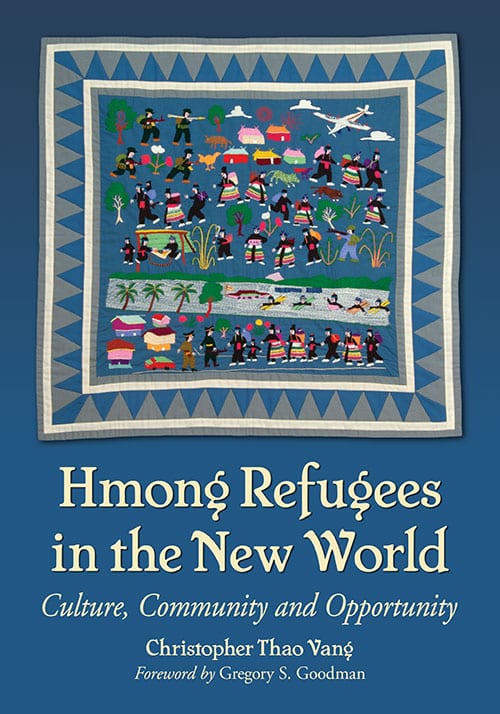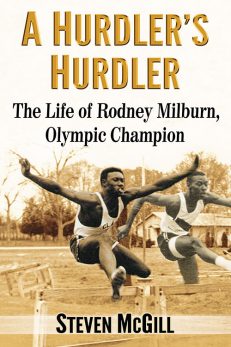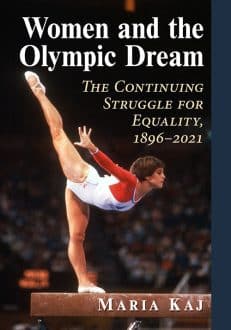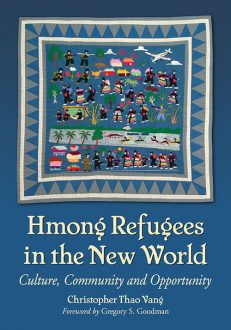Hmong Refugees in the New World
Culture, Community and Opportunity
$49.95
In stock
About the Book
Almost no one in the West had heard of the Hmong before National Geographic ran a cover story on the Southeast Asian ethnic group that had allied with the United States in the Vietnam War, and few knew of them before their arrival in the U.S. and other Western nations in 1975. Originating in China centuries ago, they have been known by various names—Miao, Meo, Miaozi, Meng or San Miao—some of them derogatory. The Hmong in the West are war-displaced refugees from China and Laos, though they have been misidentified as belonging to other ethnic groups. This mislabeling has caused confusion about the Hmong and their history. This book details the history of the Hmong and their journey from Eastern to Western countries, providing a clear understanding of an immigrant culture little understood by the American public. Instructors considering this book for use in a course may request an examination copy here.
About the Author(s)
Bibliographic Details
Christopher Thao Vang
Foreword by Gregory S. Goodman
Format: softcover (7 x 10)
Pages: 476
Bibliographic Info: 54 photos, bibliography, index
Copyright Date: 2016
pISBN: 978-1-4766-6216-9
eISBN: 978-1-4766-2262-0
Imprint: McFarland
Table of Contents
Acknowledgments xi
Foreword by Gregory S. Goodman 1
Preface 3
Part I: History of the Hmong People
One. Brief History of the Hmong 9
Introduction 9; Hmong Origins 9; The Hmong and the Miao 12; The Hmong Prior to the Imperial Xia 13; The Hmong and ChiYou 14; The Hmong and the San Miao 15; The Hmong and Chinese Dynasties 16; Hmong Settlement in Indochina 27; The Hmong and French Colonial Policy 30; The Hmong and the Japanese War 36; The Hmong and the French War 36; The Hmong and the American Secret War 38; Summing Up 43
Two. The Hmong Refugees in Diaspora 45
Introduction 45; The Final Rescue 45; Staying Under the Communist Regime 47; Fleeing the Communist Regime 50; Crossing the Mekong River 52; Childhood Memories 54; Two Case Studies of Hmong Families 60; The Refugee Camps 64; Coming to the West 66; Second Migration in the West 70; Summing Up 73
Three. The Hmong Today 75
Introduction 75; Identifying Today’s Hmong 75; Impact of Wars on the Hmong 79; Hmong in Western Nations 80; Hmong in Eastern Countries 83; Hmong Adjustment to Resettlement 86; Hmong Today and Beyond 91; Summing Up 101
Part II: Hmong Culture and Traditions in the West
Four. Hmong Family Structure 103
Introduction 103; Family Composition 103; Hmong Marriage 105; Family Roles 107; Socioeconomic Status 109; Hmong Parents and Their Children 110; Motherhood, Fatherhood and Childhood 116; Hmong Social Norms 121; Family Religions 129; Summing Up 131
Five. Hmong Cultural Values and Customs 132
Introduction 132; Values, Norms, and Customs 132; The Patriarchal System 133; Family Ancestral Origins 135; Hmong Clans 138; Hmong Ecological System 140; Respecting Parents and Elders 140; Hmong Social Behaviors 141; Hmong Humility and Proper Manners 143; Hmong Kinship and Relatives 144; Hmong Social Greetings 146; Hmong Hospitality 147; Hmong Courtship and Dating in the U.S. 149; Roles of Daughters-in-Law 150; Roles of Sons-in-Law 151; Hmong Dining Etiquette 151; Hmong Social Drinking 153; Hmong Cultural Maintenance 155; Summing Up 156
Six. Hmong Traditions and Religious Practices 157
Introduction 157; Belief Systems 157; Traditional New Year’s Celebrations 160; New Year Kowtowing Tradition 163; Hmong New Year in the West 164; Traditional Religious Practices 165; Seldom-Used Rituals and Antiquated Practices 177; Old Rituals and Practices 177; New Crop Rituals 179; Name Changing Ritual 180; Household Spirits 183; Home Restriction Ritual 184; Maternity and Postpartum Practices 185; Superstitions and Taboos 186; Summing Up 189
Seven. Hmong Marriage and Wedding Practices 190
Introduction 190; Origins 190; Variations in Marital Practices 191; Marital Restrictions and Taboos 192; Honoring Traditions Honors Families 193; The Right Time for Marriage 194; Types of Marriages 195; Types of Weddings 198; Marital Notification 200; Bride Price and Dowry 201; Marital Kowtowing Customs 203; Marital Food Basket 205; Marital Umbrella 206; Wedding Songs 206; Marital Manners and Conduct 208; Common Marital Penalties 209; Marital Crews 209; Drinking Formalities 211; Wedding Progression 212; Polygamy Is Not a Hmong Tradition 219; Summing Up 220
Eight. Hmong Funeral Services and Practices 221
Introduction 221; Origins of Funeral Practices 221; Birth and Predestination 223; Concepts of Heaven and Hell 225; Hmong Response to Death 226; Funeral Service Expenses 227; Funeral Service Preparation 229; Sacrificial Animals 232; Death Chants and Songs 234; Funeral Instruments 235; The Days of the Funeral Service 237; Soul Release Ritual 248; Summing Up 250
Part III: Hmong Oral Traditions and Written Languages
Nine. Hmong Oral Traditions 251
Introduction 251; Hmong Languages in Colors 251; History of Hmong Oral Languages 252; Hmong Language Learning 253; Hmong Oral Tradition 254; Hidden Stories in Pa Ndau 268; History of Wars 271; Emphasis on Oral Language Skills 281; Oral Language Competency 282; Summing Up 285
Ten. Hmong Linguistics and Writing Systems 286
Introduction 286; Origin of Hmong Languages 286; Roots of Hmong Written Language 288; Hmong Written Languages Today 291; Changing Usage and Unified Language 294; Hmong Grammar and Subsystems 297; Summing Up 312
Part IV: Hmong Challenges, Opportunities and Successes
Eleven. Hmong in Public Education 315
Introduction 315; Hmong Perceptions of U.S. Education 316; U.S. Educators’ Perceptions of Hmong Students 317; Socioeconomic Disadvantage and Academic Performance 321; School Practices and Academic Performance 322; Hmong Parents and Children’s Academic Performance 324; Gender and Educational Opportunity 326; Parental Support and Academic Performance 327; Socioeconomic Status and Academic Performance 329; Place of Birth and Academic Performance 330; Hmong Primary Language Issues 332; Age and English Language Learning 334; Residency and Academic Achievement 335; Hmong Academic Progress in the U.S. 336; Hmong School Dropout 343; Future Trends 344; Suggestions for Future Studies on Hmong Students 346; Summing Up 348
Twelve. The State of the Hmong Community 349
Introduction 349; Hmong Community Structure Prior to Living in the West 349; Western Hmong Community Establishment 352; Hmong Community Social Structure 354; The U.S. Hmong Population 361; Hmong Citizenship and Naturalization 363; Ages of Hmong Americans 363; Hmong Refugees with Disabilities 366; Hmong Healthcare 369; Hmong Employment and Occupations 371; Hmong Family Income 374; Hmong Refugees Living in Poverty 375; Hmong Home Ownership 375; Hmong Household and Marital Status 377; Hmong Social Media 379; Summing Up 380
Part V: Hmong Leadership and the Journey Forward
Thirteen. Hmong Leaders and Leadership 383
Introduction 383; Hmong Leaders in China 383; Hmong Leaders in Laos 386; Lo Blia Yao 394; Touby Lyfong 396; General Vang Pao 397; Hmong Leaders in the West 402; Why No Successor Named 407; Hmong Need New Leaders 408; Educated and Elected Hmong Individuals 415; The Next Hmong Leaders 416; Summing Up 418
Fourteen. The Hmong Journey Forward 419
Introduction 419; Hmong and Their Community 420; Hmong and Their Cultural Heritage 435; Hmong and Their Children’s Education 444; Hmong and Their Physical and Spiritual Health 446; Hmong and Their Transnational Politics 449; Hmong and Their Formidable Future 451; Summing Up 453
Bibliography 455
Index 459





